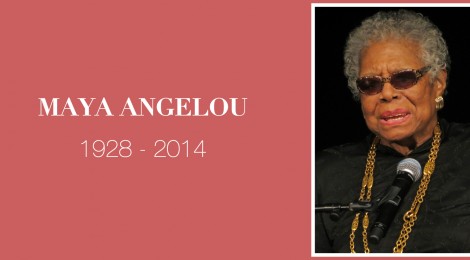
Tribute to a Phenomenal Woman
I’m not cute or built to suit a fashion model’s size
But when I start to tell them,
They think I’m telling lies.
I say,
It’s in the reach of my arms,
The span of my hips,
The stride of my step,
The curl of my lips.
I’m a woman
Phenomenally.
Phenomenal woman,
That’s me.
Maya Angelou is given a prominent position in the African-American Black literature for a wide range of reasons. Her writings or novels carry a sort of healing touch to the literary world and bring to light the history ‘from below’ to the present, modern day readers. Angelou’s vibrant and inspirational ideas and outlook are of a messenger of hope and aspirations tied up with human souls. The way she takes her readers to the journey to the interior is exquisitely autobiographical in nature and auto-ethnographic in search for meta-meaning in ethereal life.
I Know Why The Caged Bird Sings is a story of many lives lived to the fullest – aches and pains, harrowing experiences, traumatic memories, unfulfilled desires and still-born dreams. It is of life-time, bitter-sweet memories wrapped up in a piece of torn square cotton picker sack. All the characters are lively, cheering, but not happy-go-lucky. Machines had future but not the characters like cotton pickers in cotton fields. Angelo is not just throwing light on some farmers’ odd jobs, but she does describe their ways and means to achieve something not seen in life. She, in fact, paints her people’s life here:
If the morning sounds and smells were touched with the supernatural, the late afternoon had all the features of the normal Arkansas life. In the dying sunlight the people dragged, rather than their empty cotton sacks. Brought back to the Store, the pickers would fold down, dirt-disappointed to the ground. No matter how much they had picked, it wasn’t enough. Their wages wouldn’t even get them out of debt to my grandmother, not to mention the staggering bill that waited on them at the white commissary downtown.
The empty life and the disappointed day-to-day affairs melt their hearts and reward them with unsettling feelings and emotions from dawn to dusk. Moreover, this novel is about her autobiographical stories knit together to represent the afflicted, mangled, raped, exploited, subjugated, and manipulated by the dominant white in the name of racial discrimination.
The title of the novel, I Know Why The Caged Bird Sings bears the tone of a purpose driven question in a revealing statement form. While these reason bearing words resonate with complex emotions, Angelou pours out her lived experiences so as to give behavioral, emotive and social meanings to the readers of the 21st century. It is indeed worthy to encounter her formative experiences.
The rest of the article can be accessed here.


